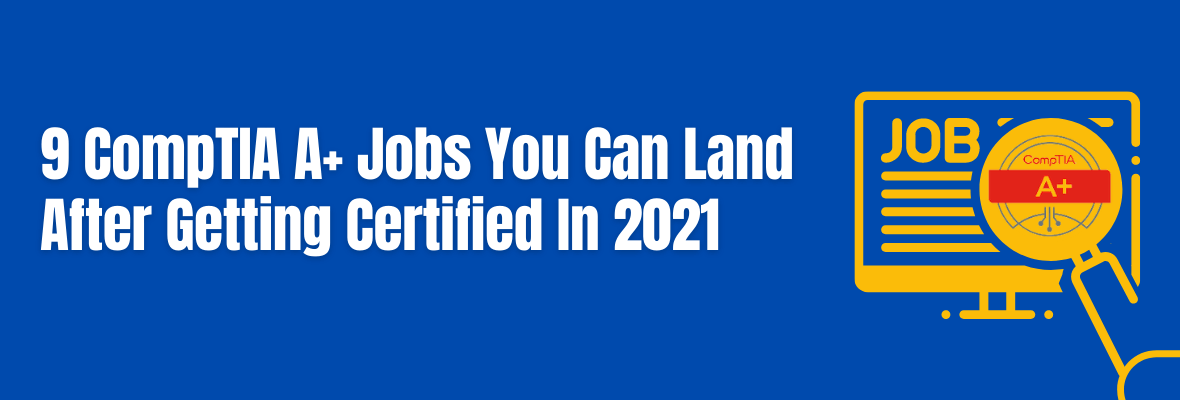9 CompTIA A+ Jobs You Can Land After Getting Certified In 2021
Are you building a career in IT? If so, you most likely have heard of CompTIA A+ Certification and its unbeaten benefits. Why is this certification a highly-regarded credential in the IT industry? What kind of jobs can you get with CompTIA A+ Certification?
Here are the top 9 jobs you can land with CompTIA A+ Certification:
1) Service Desk Analyst
Service desk analysts are skilled IT professionals who provide technical assistance to the users of an organization. Their primary responsibilities include being responsive to inquiries, and analyzing and resolving issues. They tend to all of the technical needs of information system units. Service desk analysts earn up to $45,470 every year in the US.
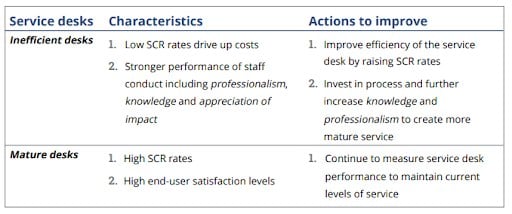
Source: iSG
The following are core responsibilities of a service desk analyst:
- Resolve Issues - Support requests may come from a wide range of networks, such as telephones, chats, and emails. Service desk analysts are responsible for documenting the severity of such issues and employ standard procedures to resolve them.
- Escalate Issues - If service desk analysts fail to resolve issues, they are expected to immediately escalate them to the appropriate support specialists.
- Maintain Documentation - Service desk analysts keep track of all issues pertaining to the organization's software and hardware. They also maintain elaborate documentation of these issues.
- Solve Issues Remotely - They attend to all kinds of technical issues; they even are authorized to resolve issues remotely.
2) Technical Support Specialist
Technical support specialist is one of the most sought-after CompTIA A+ jobs in the world. A technical support specialist gives technical support and maintenance to hardware and all computer systems. Their responsibilities include installation, configuration, and updating of software and hardware. They could both assist the organization and carry out maintenance in-house or to customers. They enjoy great demand across all industries; based on how large the organization is their work may spread across just one domain or several. Currently, their average annual salary in the US is $57,200.
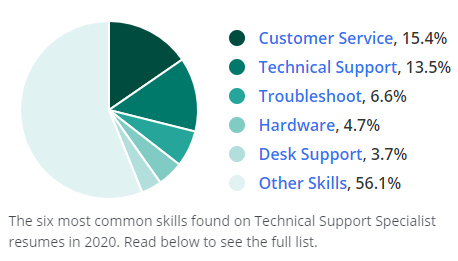
Source: Zippia
What are their primary responsibilities?
- Maintain Software & Hardware - Consistent maintenance of in-house software and hardware
- Configure Systems - Installing and configuring technology
- Resolve Tech Issues - Giving assistance with tech-related issues in the organization
- Troubleshooting - Troubleshooting applications and systems
- Healthcheck - Health-checking all system and substituting damaged parts
- Security Checks - Deploying security checks on all systems in the organization
- Reports - Creating reports on the status of hardware and software
- Updates - Learning new updates
3) Field Service Technician
Also called a network technician, this role is one of the best jobs you can get with CompTIA A+ certification. A field service technician is responsible for providing on-site end-user assistance, maintenance, programming, installation, and more. These professionals resolve issues related to telecommunication systems and cabling. Their responsibilities include repairs and client demonstrations. Their line of work requires them to be always on the move, that is, field technicians need to be comfortable with not having a sedentary work life. According to the US Bureau of Labor Statistics, field service technicians with excellent communication skills and an associate’s degree will continue to be in high demand. In the US, they presently earn $60,000/year.
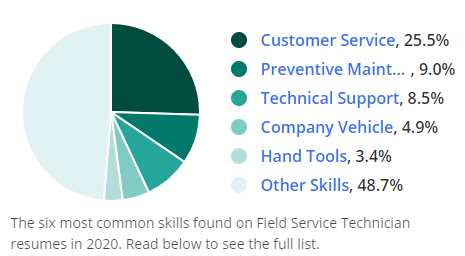
Source: Zippia
Their core responsibilities include:
- Services and Tests - Providing network services and conducting equipment tests
- Resolving Issues - Identifying and resolving issues along with managing on-site activities
- Supporting Clients - Supporting clients during field visits
- Conducting Tests - Conducting integrity tests on network installations
- Troubleshooting - Monitoring and troubleshooting data networks
- Repairing and Support - Develop support for all customer program and repairing connectors and data wiring
4) Associate Network Engineer
Also called network architects, associate network engineers take care of the network infrastructure. They ensure consistency in network designs and maintain top-notch security standards and guidelines.
As businesses always require associate network engineers, this is CompTIA A+ job will continue to be in demand. $44,282 is the current annual average salary of associate network engineers in the US.
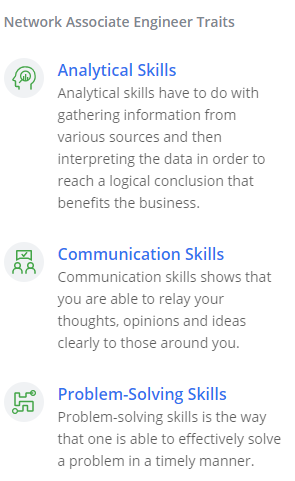
Source: Zippia
Their core responsibilities include the following:
- Identify Improvement Areas - They are expected to add value to the organization by identifying areas of improvement
- Implement Tools - They implement network tools after careful examination of network capacity
- Collaborate & Resolve - They collaborate with the systems administration team to solve issues related to storage, backup, and interconnectivity
- Handle Documentation - They are required to handle documentation and systems involved in audits
- Network Performance - They evaluate the performance of the network
- Monitor Networks - They provide tools to monitor networks
5) Data Support Technician
A data support technician procures and records all information pertaining to the organization. They also provide assistance in the recovery of organizational data. This job position finds immense importance in a data-driven organization. It is mandatory to have a degree in computer science to be successful in this field. Additionally, credentials like CompTIA A+ can help you land this job easily. Presently, a data support technician earns $54,076 every year in the US.
Their core responsibilities are:
- Support and Maintenance - Maintaining databases for data analysis and supporting data analysis teams in projects
- Deliver Data - Interacting with various teams to deliver data
- Data Visualization - Using data visualization tools for an enhanced approach
- Troubleshooting - Getting systems ready for employees and troubleshooting remotely using analytical practices
- Identifying Issues - Identifying issues based on business requirements
- Issue Diagnosis - Diagnosing hardware and software issues
6) Cybersecurity Manager
This is one of the most popular CompTIA A+ jobs. A cybersecurity manager keeps track of the channels through which information flows in and out of the organization. They monitor and observe all the operations that take place within the network. They make sure that they have an optimum number of resources at their disposal to facilitate these operations.
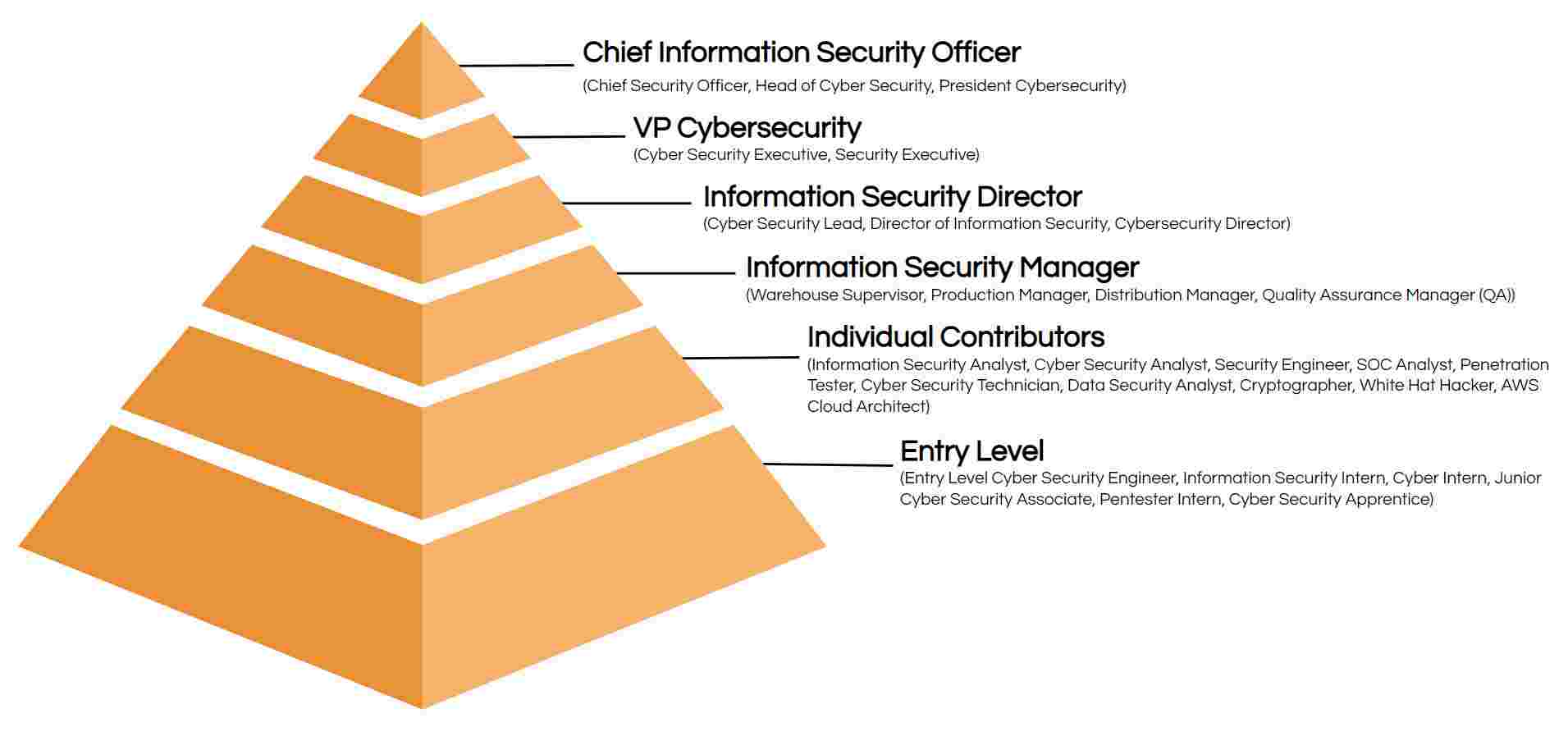
Source: ONGIG
Cybersecurity managers can specialize in various areas, including application security, cloud security, and infrastructure security. From government agencies to healthcare, cybersecurity managers enjoy great demand across industries. $134,010 is the average annual salary of cybersecurity managers.
According to some cybersecurity statistics, the cybersecurity landscape has tremendously changed due to the pandemic. This has led to cyberdemics that have skyrocketed the demand for cybersecurity managers, which is a favorable outcome for aspiring cybersecurity managers.
The primary responsibilities of a cybersecurity manager include:
- Managing Tools and Threats - Procuring cybersecurity tools and tackling cybersecurity threats through risk mitigation
- Upgrading and Maintenance - Executing software upgrade and maintaining hardware systems
7) Desktop Support Administrator
Desktop support administrators strive to enhance the experience of end-users for remote and in-house employees. They carry out service desk activities and respond to emails and phone calls. They also perform daily functional tasks, such as configurations, upgrading, and license tracking.
The demand for desktop support administrators continues to be high and is expected to increase in the coming years. They currently earn $46,532 every year in the US.
Here are the core responsibilities of a desktop support administrator:
- Configuration - Setting up systems for new employees and configuring equipment for in-house uses
- Hardware Evaluation - Evaluating and replacing hardware components
- Network Assessment - Assessing network and connectivity issues
8) Help Desk Technician
A help desk technician is one of the most important CompTIA A+ jobs. This role is vital to the efficient running of IT departments and provides technical assistance for hardware, software, and computer systems. The primary responsibility of a help desk technician includes giving IT support, upkeep technologies, and creating solutions. He or she is also responsible for replying to customers’ emails, chats, or even queries over the phone.
A help desk technician is one of the best CompTIA A+ entry-level jobs that help you hone your technical skills. At present, the salary range for this role is $35,000 to $70,000 from entry- to lead-level.
Their core responsibilities include:
- Troubleshotting and Technical Advice - Troubleshooting issues raised by customers and giving technical advice and assistance to customers
- Feedback and Improvement - Gathering feedback from clients and identifying areas of improvement
- Training and Maintenance - Providing training sessions to end-users along with maintaining, cleaning, and repairing PC
9) System Support Specialist
A system support specialist is responsible for providing all sorts of help desk assistance. He or she tackles issues that affect end-users: network breakdowns, software issues, hardware issues, and more. If a certain issue is beyond the scope of their experience and expertise, they escalate it to appropriate departments.
Since enterprises upgrade software and hardware from time to time, a system support specialist is one CompTIA A+ Certification job that will always be in demand. Their average annual salary is $57,500.
Here are the core responsibilities of a system support specialist:
- Monitoring and Support Activities - Creating and deploying support activities along with monitoring all systems
- Guidance to End-users - Giving guidance to end-users about software and application access and usage
- Upgrading System Applications - Monitoring, analyzing, and upgrading system applications
- Supporting - Supporting OS, SaaS, and other critical organization applications
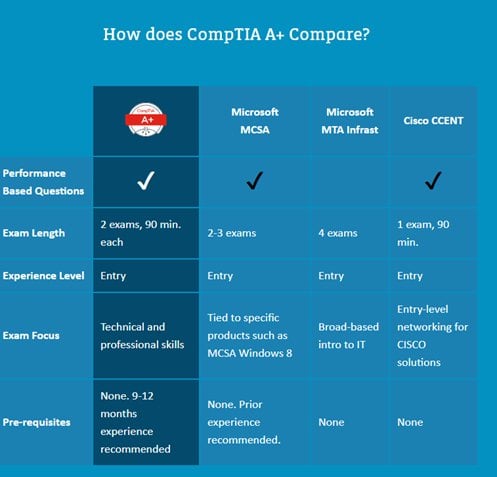
Source: CompTIA
Benefits of Getting CompTIA A+ Certification
Why choose CompTIA A+ Certification? The certification is a globally recognized credential that makes you eligible for a wide range of high-paying jobs. It stands as a testament to your hands-on security and technical skills.
Here is why you need CompTIA A+ Certification -
- The certification is the industry standard for building your career in the IT industry. Getting jobs with CompTIA A+ Certification is easier; it gives you an edge over the competition.
- It polishes your security skills. CompTIA A+ Certification courses offer hands-on experience with software and hardware fundamentals.
- CompTIA A+ jobs salary is higher; the certification opens doors to high-paying jobs.
- The certification is not as expensive as a conventional degree.
- It helps you acquire great problem-solving skills.
If you are looking to get CompTIA A+ certified, it is necessary to use a premier provider. GreyCampus has been helping countless participants across the globe crack the CompTIA A+ Certification. Its CompTIA A+ Certification program offers bootcamp training led by industry experts. The program comes with guaranteed hands-on experience in cloud, security, and data management.
Want To Get CompTIA A+ Certified? Sign Up for a Bootcamp Today!
